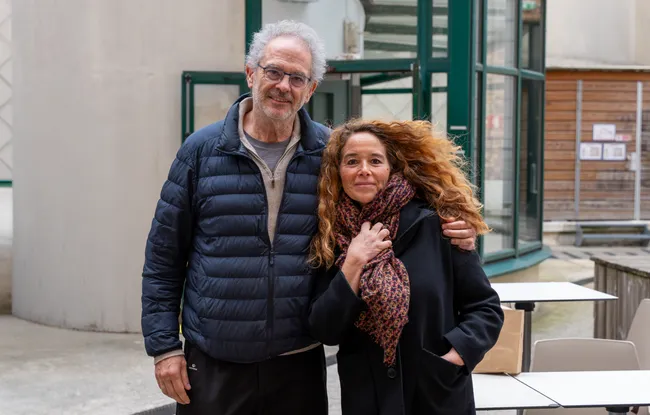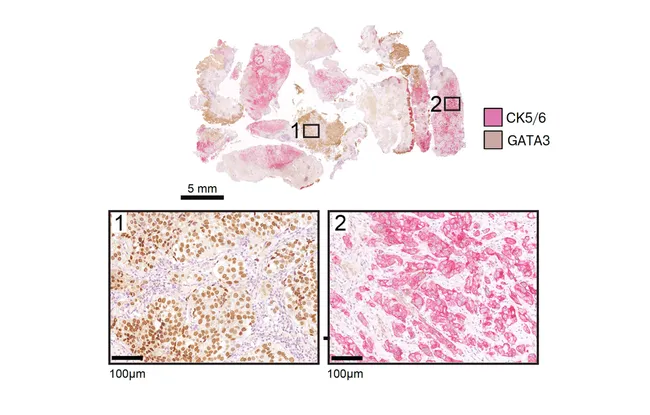- Home >
- Institut Curie News >
- New data on the prognosis of different molecular subtypes of bladder cancer
The VESPER clinical trial, the results of which were published in 2022 and in which researchers from Institut Curie and French teams coordinated by Prof. Pfister and Prof. Culine took part, has led to changes in the management of bladder cancer: the combination of neoadjuvant drugs tested in the study (methotrexate, vinblastine, doxorubicin and dense-dose cisplatin) proved more effective than the other protocol commonly used until now (gemcitabine and cisplatin).
“Given the robustness of the results obtained in this study, given the number of patients and the quality of the samples recovered, we were able to use them for additional analyses in more fundamental research,” explains Prof. Yves Allory, pathologist in the Diagnostic and Theranostic Medicine Division at the Hospital Group and researcher attached to the Cell Biology and Cancer Unit (CNRS UMR 144 / Sorbonne Université) at the Institut Curie Research Center.
There are different categories of bladder cancer on a molecular level, but these have not been taken into account in the study of treatment efficacy. It is this point that the team addressed in this new study. They were able to show that, despite an overall improvement in the prognosis of bladder cancers, the prognosis of so-called “basal” tumors remains poor.
“Our results here show that there are also particularities to be taken into account according to bladder cancer subtypes. These need to be explored in order to improve prognosis and treatment”.
The team has also highlighted the presence of heterogeneity within certain tumors, which can be detected in patients by taking tissue samples from different locations. This heterogeneity, known as “mixed” tumors, also has a poor prognosis. The question of this heterogeneity, and in particular its role in resistance to treatment, is present in many cancers, paving the way for numerous collaborations with other research teams. The project will also continue to focus on the use of artificial intelligence algorithms to improve detection and treatment.
References : C. S. Groeneveld, C. Pfister, S. Culine, V. Harter, C. Krucker, J. Fontugne, V. Dixon, N. Sirab, I. Bernard-Pierrot, A. de Reyniès, F. Radvanyi, Y. Allory
Basal/squamous and Mixed subtype bladder cancers present poor outcomes after neoadjuvant chemotherapy in the VESPER trial. Annals of oncology (17 septembre 2024) doi : 10.1016/j.annonc.2024.09.008.
Research News
Discover all our news
Celebration
The Immunity and Cancer research unit (U932) celebrates its twentieth anniversary
12/12/2025
Artificial Intelligence
08/12/2025


